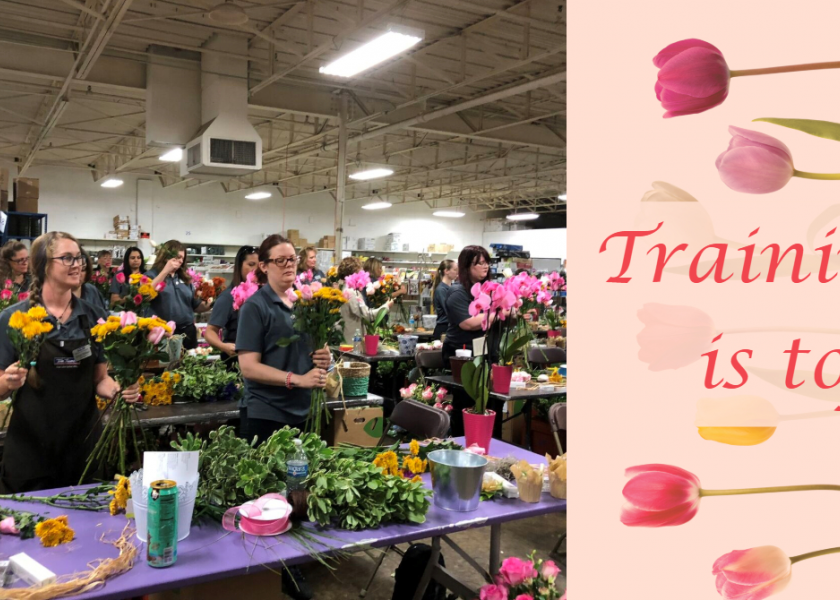Proper floral training's a must

Proper training of the supermarket floral team is a must in order to keep customers satisfied and to ensure that floral is a well-run, profitable department.
But training is not a one-size-fits-all proposition.
“When it comes to the training of supermarket floral workers, that training is up to the supermarket chain and the individuals at the store level,” says Becky Roberts, director of floral and new initiatives for the Produce Marketing Association.
Supermarkets should develop their own best practices that detail how their floral programs should be run, she says, “and then each store executes depending on the needs of their customers.”
Suppliers can play a role, too, by providing care and display tips for their products, Roberts says.
“Proper care can help increase sales and reduce shrink,” she says.
“Communication between buyer and supplier can help strengthen partnerships and the bottom line.”

World Class Flowers, Egg Harbor City, N.J., is one supplier that makes an effort to ensure that its customers receive proper training, says Robert De Bellis, design lead–product development.
Most supermarkets don’t have a formal training program, De Bellis says.
“A lot of people who are in-store who get moved to the floral department have no clue about floral.”
De Bellis recommends assigning new floral employees to work with a trained designer for a month or so to acquire needed experience.
Some supermarkets only hire designers who are formally trained, he says, “But that’s not the norm.”
De Bellis spends much of his time visiting customers’ stores and training in a variety of areas, including corsages, weddings, and, perhaps most importantly, upgrading.
“Upgrading is a very important thing in our industry,” he says.

Upgrading starts with a premade bouquet, and “they basically cut it and they put it in vases and make a finished vase all ready for sale.”
Many stores push upgrading “because it is ultimately so much faster than a floral designer starting from scratch and making a vase,” he says.
Care and handling, including tasks like cleaning buckets and cutting stems properly, is another area in which training is a must, he says.
Proper training saves time, money, reduces shrink and guarantees that a floral department will have nice product in the cooler, he says.
De Bellis says his sessions last from one to six hours, depending on time allotted by the supermarket, and he says that he tries to make his training entertaining as well as educational.
Speaking of education, the Produce Marketing Association offers its Fresh Connections: Floral events in Anaheim, Calif., and Miami each year to “help bring the floral industry together to grow their businesses and share information,” says PMA’s Roberts.
The events also provide the industry with opportunities to learn about current consumer and market trends specific to the floral industry, she says.
The schedule for both events includes time for networking with floral buyers and sellers from across the supply chain, hearing from credited speakers and spending time with colleagues and business partners.
Education topics for this year’s events were being finalized in late January.







